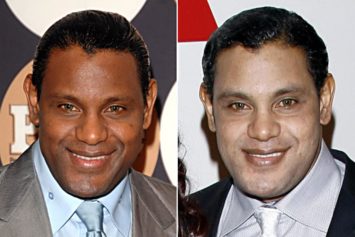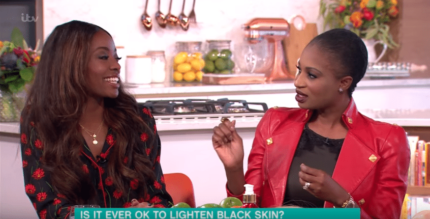As you leave Jomo Kenyatta International Airport (JKIA), you will be confronted by large billboards on which the models advertising products are either white or very light – none is dark-skinned.
The mass media seem to be saying that really black women are the opposite of the ideal.
Magazines, TV, radio and movies and the rising influence of Western pop culture are fervidly promoting a Eurocentric, blonde-haired, light-eyed and stick-thin standard of beauty. And no one seems more peeved by this emerging trend than Kenya’s top model Ajuma Nasenyana.
“It seems that the world is conspiring in preaching that there is something wrong with Kenyan ladies’ kinky hair and dark skin,” says Ajuma, a woman with dark skin, short hair and high cheekbones, complains. Big advertising and modelling agencies seem to be promoting the light-skinned over the dark-skinned model, she says, pointing to a Swedish cosmetics firm that recently entered the Kenyan market.
“Their leaflets are all about skin-lightening, and they seem to be doing good business in Kenya. It just shocks me. It’s not okay for a Caucasian to tell us to lighten our skin,” she says. She says Europeans have natural skin and wonders why they want “us to bleach ours”. On a visit to Kenya, British supermodel Naomi Campbell, who has complained that she is rarely featured on the cover of British Vogue, raised concerns that black models were being sidelined by modelling agencies.
“It’s a pity that people don’t appreciate black beauty,” she said.
These days whenever she has the opportunity, Ajuma speaks out against skin-bleaching, and she is taking it on as her own fight.
Attitudes against colour and the increasing promotion of skin-lightening products are placing a burden on dark-skinned women.
Last year, Psychology Today published a blog by evolutionary psychologist Satoshi Kanazawa titled “A Look at the Hard Truths About Human Nature” that raised a firestorm by declaring that black women are objectively less attractive than white women but also less attractive than black men.
Physical attractiveness.
“The only thing I can think of that might potentially explain the lower average level of physical attractiveness among black women is testosterone,” he wrote. “Africans on average have higher levels of testosterone than other races, and testosterone, being an androgen (male hormone), affects the physical attractiveness of men and women differently.
“Men with higher levels of testosterone have more masculine features and are, therefore, more physically attractive. In contrast, women with higher levels of testosterone also have more masculine features and are therefore less physically attractive. The race differences in the level of testosterone can therefore potentially explain why black women are less physically attractive than women of other races, while (net of intelligence) black men are more physically attractive than men of other races.”
Criticism forced Psychology Today to first change the blog’s title and later to retract it altogether.
In Kenya, many women use various cosmetic products apparently to make themselves more attractive. They straighten their hair because they do not like their natural curls.
Skin-bleaching products like Carol Light are now some of the fastest moving in Kenya.
Read the rest of this story here


